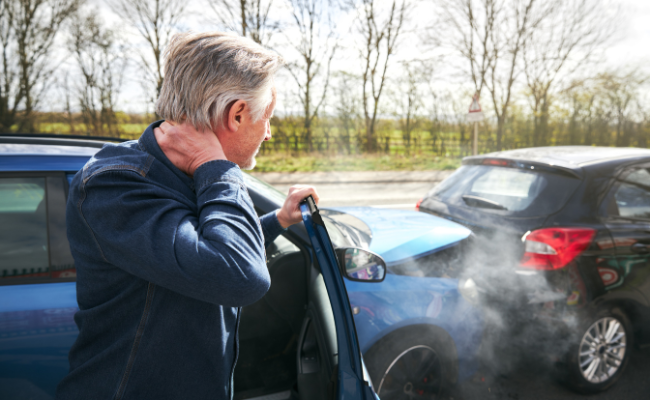Sleep-Deprived Driving Is Just as Dangerous as Drunk Driving
Sleep deprivation can be dangerous in more ways than you can think of. The adverse effects of sleep deprivation are well documented, from decreased cognitive performance to increased irritability.
However, one of the most alarming consequences of sleep deprivation is its impact on driving. Research shows that sleep-deprived driving can be just as dangerous as driving drunk.
This is a significant concern because sleep deprivation is widespread in our society, and many drivers may not be aware that they are too tired to drive safely.
Anyone who decides to drive without getting the optimal rest is putting themselves and other road users at risk. Let’s look at the dangers of sleep-deprived driving, its effects on the body, and ways to prevent it.
The Impact of Sleep Deprivation on Driving Ability
When we don’t get enough sleep, we impair our ability to concentrate, react quickly, and make sound decisions. When driving, these effects can be hazardous, where split-second decisions can be the difference between accidents.
Studies have shown that driving after being awake for 18 hours or more can be equivalent to driving with a blood alcohol concentration (BAC) of 0.05%, above the legal limit in many countries. After being awake for 24 hours or more, the impairment can be similar to having a BAC of 0.10%.
How Does Sleep-deprived Driving Compare to Drunk Driving?
Sleep-deprived driving and drunk driving can impair a person’s ability to drive safely, and they are both dangerous forms of impaired driving.
You may also like: 7 Healthy Sleep Habits for Children
When a person is sleep-deprived, their reaction times, decision-making skills, and overall cognitive function can be impaired, leading to slower reflexes and poor judgment on the road.
Similarly, when a person is under the influence of alcohol, their motor skills, coordination, and ability to process information can also be impaired, leading to poor driving performance and decision-making.
What Are the Dangers of Sleep-Deprived Driving?
Driving while sleepy can cause a considerable number of accidents on the road. However, this issue doesn’t receive the same attention as drunk driving.
Many drivers are aware of the dangers of drunk driving but completely neglect how dangerous drowsy driving can be.
Here are some dangers of sleep-deprived driving:
- Slower reaction time
- Reduced alertness
- Poor decision making
- Impaired vision
- Increased risk-taking actions
All these factors increase the chances of an accident. According to National Highway Traffic Safety Administration (NHTSA) statistics, drowsy driving accounts for approximately 100,000 accidents annually, resulting in over 1,500 deaths and 71,000 injuries.
Furthermore, the AAA Foundation for Traffic Safety studies realized that drowsiness contributed to 9.5% of all car-related accidents.
A CDC survey also recorded the following in sleep-deprived driving:
- About 4% of adult drivers (18 years or older) admitted to falling asleep while driving in the past 30 days.
- Drivers who sleep for 6 hours or less per day are likelier to fall asleep while driving than those who do not snore or sleep for 7 hours or more.
- In 2020, police reports show 633 deaths from drowsy driving, but these figures are likely underestimated. Every year, over 6,000 fatal crashes may involve a drowsy driver.
How to Avoid Sleep-Deprived Driving
As a general rule, you shouldn’t drive if you feel drowsy. Here are several steps you can take to avoid sleep-deprived driving:
- Get Enough Sleep: Aim to get seven to nine hours each night. This will help ensure that you are well-rested and alert when driving.
- Plan Your Trips: Plan your trips when you are most alert. Avoid driving during periods when you would typically be sleeping.
- Take Breaks: When driving long distances, take regular breaks to stretch your legs and give your mind a rest.
- Pay Attention to Your Body: If you feel tired or sleepy, don’t try to push through it. Take a break, rest, or take a nap.
- Drive with a Passenger: Having a passenger to talk to or share driving responsibilities with can help keep you alert and focused.
You may also like: New Study Reveals the Ideal Amount of Sleep to Avoid a Beer Belly
Legal Consequences of Sleep-Deprived Driving
Yes, there are legal consequences for drowsy driving. For instance, in New Jersey, anyone awake for up to 24 hours and still goes behind the wheel is put under the same classification as a drunk driver.
New Jersey legislators passed a law that labeled drowsy driving a criminal offense, and it will not take too long for other states to follow suit. You should rethink your decisions if you do not sleep enough and still want to get behind the wheel.
Final Thoughts
Sleep-deprived driving can be just as dangerous as driving under the influence of alcohol. It’s important to prioritize getting enough rest and avoiding driving when feeling drowsy.
Remember, getting a good night’s sleep is essential not only for our health and well-being but also for our safety on the road.




